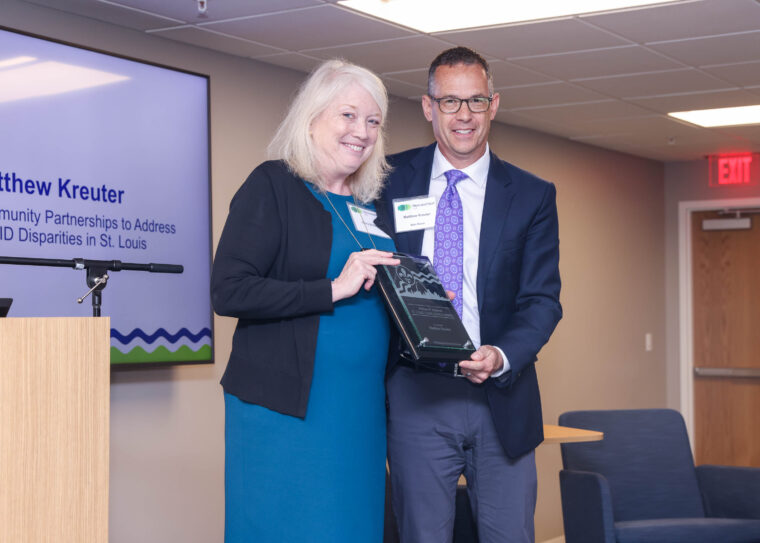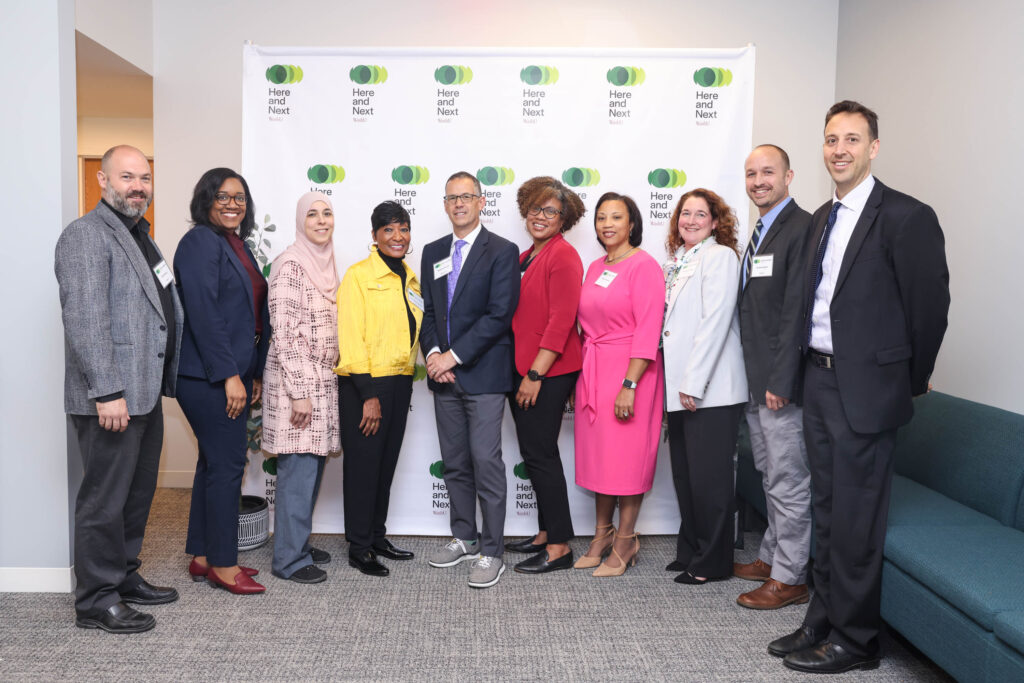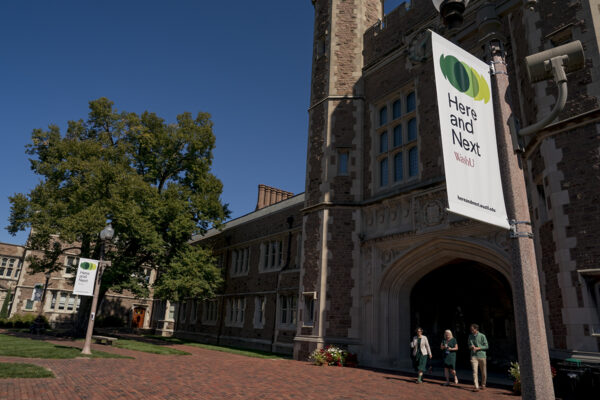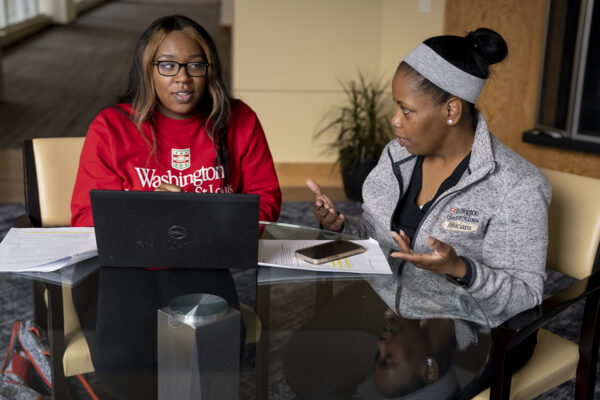Matthew Kreuter, a faculty member at the Brown School, is the first recipient of the William H. Danforth St. Louis Confluence Award (STLCA), the Office of the Provost announced. The award focuses on and elevates Washington University in St. Louis’ investment in the region by encouraging research that enhances community impact.
“William H. Danforth is the namesake of this notable award because he recognized how closely our university and our city are linked,” said Mary McKay, vice provost for interdisciplinary initiatives. “In honor of his enduring legacy and informed by ‘Here and Next,’ a vision built on that legacy, we recognize the collaboration, innovation and impactful research that contribute to a brighter future for our region. When we center sustainable partnerships built on earned trust, then we can, as proud stewards of Dr. Danforth’s legacy, create a future worthy of the talented, diverse people and institutions who call our city home.”
STLCA recognizes and elevates the strength and impact of the work already being led by community-minded researchers, their partners and university collaborators.
“This is a team award, for our group and for our community partners,” Kreuter said. “I’m honored that my name goes on it, but this was a massive undertaking by so many people.”
The existing strength of researchers, including Kreuter, positions WashU to forge genuine partnerships in the St. Louis community to create greater equity in the city, state and region.
“So much of our strategic vision is reflected in this award,” McKay said. “It represents the impact of research that’s led by our talented faculty. Our commitment to our region is evident in the deep collaboration with our community partners. We aim to address the deepest societal challenges, beginning right here in St. Louis. It was an honor to bring our researchers and their community partners together to recognize and elevate their impactful work.”
Kreuter, the Kahn Family Professor of Public Health, was recognized for his numerous collaborations with local organizations to address and reduce racial and socioeconomic disparities exacerbated by the COVID-19 crisis. A national expert in public health communication, he founded the university’s Health Communication Research Lab.
At the pandemic’s onset, Kreuter and his team reached out to local organizations, offering assistance where, when and how it was most needed. Once community partners identified priorities, Kreuter’s team worked to secure federal funding — more than $5 million so far — to implement and support their solutions. The resulting outreach, which continues, has reached thousands of St. Louisans.
Examples include working with partners to:
- design COVID informational materials, including self-testing instructions, door hangers for neighborhoods, websites and data dashboards to better inform community members about the pandemic;
- coach vaccine ambassadors, giving people who received the vaccine conversation cards to help them speak with unvaccinated friends, neighbors and loved ones about their experience and to help build trust;
- create a testing and vaccination program for homebound seniors; and
- reach young people through a partnership with STL Story Stitchers to educate them about the vaccine.
Kreuter’s team also helped to establish a new way to measure and track vaccine misinformation in the St. Louis community.
“The St. Louis County Health Department came to us for help because their staff were hearing all kinds of vaccine myths and did not know how to respond,” Kreuter said. “We created iHeardSTL, the nation’s first local surveillance and response system for health misinformation. Each week, we survey 200 adults in St. Louis to learn what misinformation they are hearing, identify the biggest threats, share the findings on a public dashboard and provide accurate responses for workers to use.”
“New myths were emerging daily – so fast, staff just couldn’t keep up,” said Damon Broadus, director of health promotion and public health research at the St. Louis County Department of Health. “We needed a more systematic approach, and thus iHeard STL was created. This provided partners an opportunity to evaluate a community-engaged approach for increasing conversations about vaccine hesitancy.”
iHeardSTL became so effective that the program will expand to five additional states and Washington, D.C., with more locations expected. Read more about the program here.
“It’s a great example of how local programs that the university has helped to launch have become national models for addressing a new kind of emerging public health threat, which is misinformation,” Kreuter said. “Faculty members from across WashU were involved in this work, including Charlene Caburnay, Kim Johnson and Maura Kepper, from the Brown School, Penina Acayo Laker, from the Sam Fox School, and Amy McQueen, from the School of Medicine.”
Kreuter accepted the award and presented his team’s research at the William H. Danforth St. Louis Confluence conference and award ceremony, held April 28 at the Delmar Divine.





